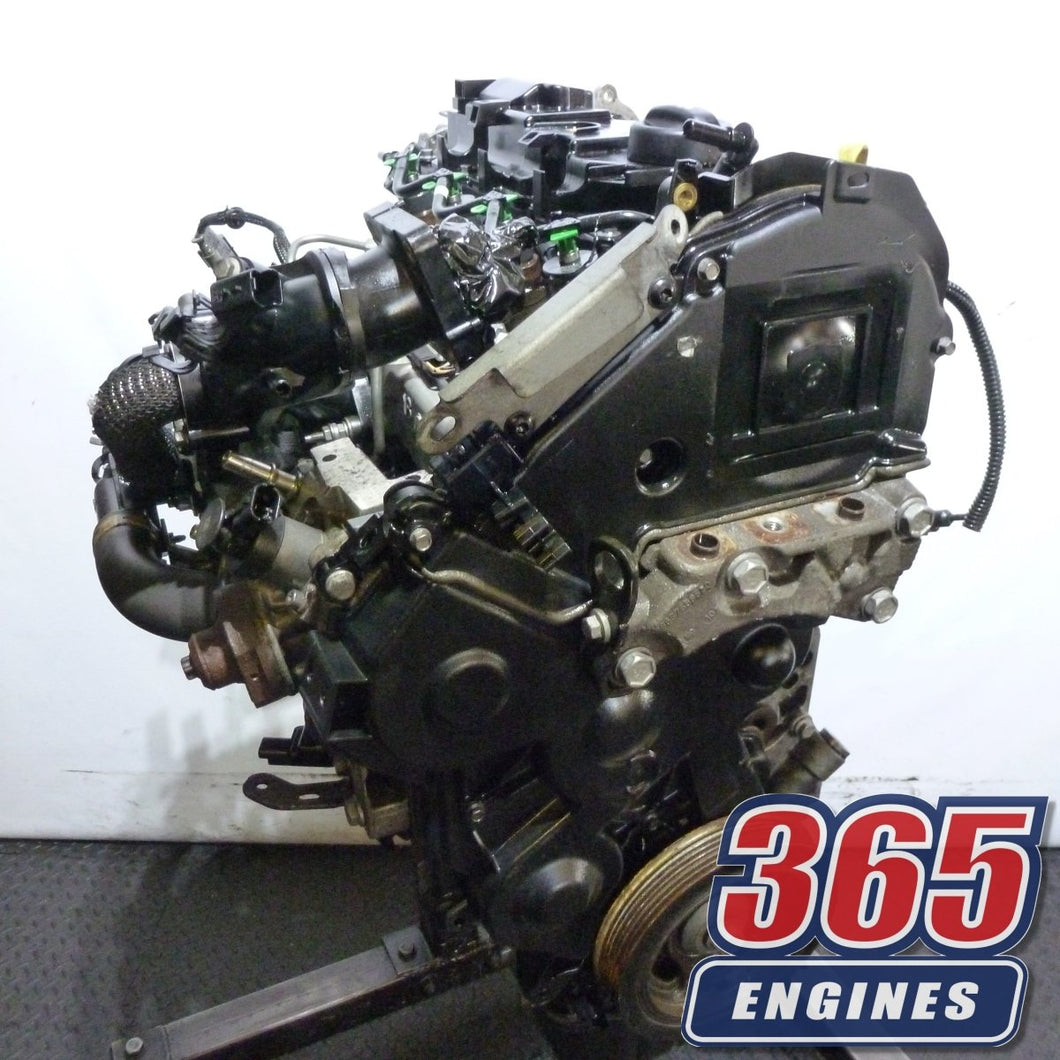How to Diagnose Ford Fiesta Engine Issues and Prevent Future Problems
How to Diagnose Ford Fiesta Engine Issues and Prevent Future Problems
Blog Article
Unlocking the Power of Engines: A Comprehensive Overview to Efficiency and Performance
Comprehending the detailed technicians of engines is important for both performance lovers and day-to-day drivers. The answers might redefine our strategy to engine performance and efficiency in means that are both enlightening and essential.
Recognizing Engine Basics
What constitutes the basic technicians of an engine? At its core, an engine is a maker created to transform fuel into mechanical power through a collection of regulated explosions or burning processes.
The crankshaft then changes this straight motion into rotational energy, which inevitably powers the lorry. The camshaft regulates the opening and closing of the valves, controling the consumption of air and gas and the expulsion of exhaust gases. Furthermore, the engine depends on a carefully calibrated fuel-air blend, ignition system, and cooling down system to make sure ideal efficiency and performance.
Recognizing engine basics also includes acknowledging the importance of engine cycles, such as the four-stroke cycle, that includes consumption, power, compression, and exhaust strokes. Each stage is vital in making certain the engine operates smoothly and effectively. Mastery of these fundamental mechanics prepares for discovering much more complicated engine characteristics and performance metrics, vital for optimizing both power outcome and efficiency.
Secret Efficiency Metrics
Trick performance metrics are crucial for reviewing an engine's efficiency and power outcome, giving beneficial insights for both suppliers and consumers. These metrics act as criteria for engine performance, enabling informed choices in buying, style, and manufacturing.
One of the main metrics is horse power, which quantifies the engine's capability to do work over time. Torque, measured in pound-feet, is another vital statistics that indicates the engine's rotational force, straight impacting acceleration and towing ability. Gas effectiveness, commonly determined in miles per gallon (MPG) or liters per 100 kilometers (L/100km), examines exactly how properly the engine transforms fuel right into movement, affecting ecological factors to consider and functional costs.
Furthermore, thermal performance steps how well an engine transforms fuel power into useful job, exposing insights into power losses mainly with heat. Emission degrees, consisting of CO2 and NOx, are additionally critical, mirroring the engine's environmental impact and conformity with regulatory requirements.

Tuning Techniques for Effectiveness
Tuning techniques play a substantial duty in boosting engine efficiency by optimizing performance metrics recognized in earlier conversations (ford fiesta engine). Various methods exist to tweak an engine, each adding to boosted fuel economic situation and lowered discharges
One effective strategy is adjusting the pop over here air-fuel proportion, guaranteeing the engine operates within the optimal combustion routine. A leaner blend can boost fuel efficiency, but it has to be balanced to stop misfires or engine knock. In addition, reprogramming the engine monitoring system can alter criteria such as ignition timing, which even more enhances performance while preserving power result.
Another essential method involves customizing the consumption and exhaust systems. Updating to high-performance air filters and exhaust headers can reduce back stress, promoting much better airflow. This enables the engine to breathe more openly, bring about enhanced burning effectiveness.
Furthermore, the implementation of innovative adjusting tools, like dyno screening, provides exact information that allows targeted adjustments. Regularly monitoring these efficiency metrics makes sure that adjusting efforts produce the desired performance results. Jointly, these strategies not just bolster engine efficiency however also add to long-term sustainability in engine procedures.
Maintenance for Ideal Performance
Regular engine maintenance is necessary for attaining ideal performance and long life. A properly maintained engine not only operates successfully yet also lessens the danger of expensive repairs and malfunctions. Secret parts calling for routine attention consist of oil, filters, belts, and stimulate plugs.
Altering the engine oil at advised intervals is essential, as oil lubes relocating components and stops getting too hot. Changing oil and air filters guarantees that contaminants do not hinder engine function. Ignoring these components can result in lowered effectiveness and possible engine damages.
In addition, inspecting and changing worn directory belts and pipes is crucial to prevent abrupt failures. Timing belts, in certain, should be changed according to the maker's routine to avoid disastrous engine damages.
Ignition system need to likewise be checked and replaced as required, considering that they play a critical duty in ignition and gas efficiency.
Future Fads in Engine Technology
Accepting improvements in modern technology, the future of engine layout is positioned to revolutionize performance and performance across different applications. Hybrid and completely electric powertrains are ending up being significantly mainstream, offering reduced discharges and improved fuel effectiveness.
Additionally, technologies in products scientific research are causing lighter, stronger parts that enhance engine efficiency while decreasing power usage. Advanced manufacturing methods, such as 3D printing, permit the production of intricate geometries that enhance air flow and thermal administration, hence maximizing combustion procedures.
Furthermore, the assimilation of fabricated knowledge and artificial intelligence is set to transform engine diagnostics and efficiency adjusting. These modern technologies can analyze substantial amounts of data in real time, enabling predictive maintenance and tailored performance improvements.
Final Thought
In final thought, opening the power of engines needs a complete understanding of their technicians and efficiency metrics. Applying efficient tuning techniques and sticking to regular upkeep techniques dramatically boost engine capacities.
Additionally, the engine relies on a very carefully calibrated fuel-air blend, ignition system, and cooling down system to guarantee optimum performance and effectiveness.
Recognizing engine basics likewise entails acknowledging the value of engine cycles, such check my site as the four-stroke cycle, which consists of intake, compression, exhaust, and power strokes. Mastery of these essential mechanics lays the foundation for exploring a lot more intricate engine dynamics and performance metrics, important for enhancing both power output and effectiveness.

Accepting developments in innovation, the future of engine style is positioned to change efficiency and effectiveness throughout various applications.
Report this page